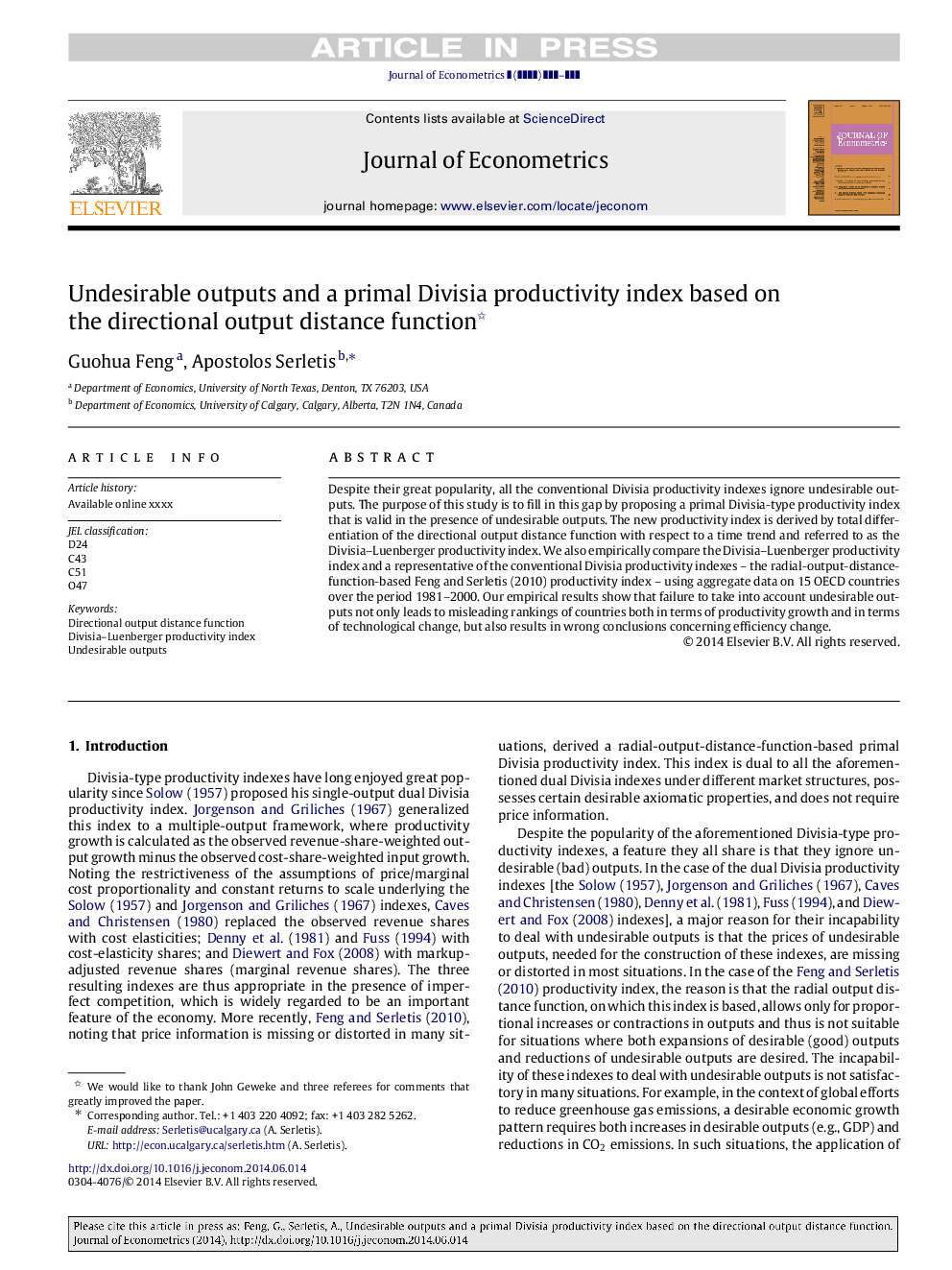| Article ID | Journal | Published Year | Pages | File Type |
|---|---|---|---|---|
| 5096091 | Journal of Econometrics | 2014 | 12 Pages |
Abstract
Despite their great popularity, all the conventional Divisia productivity indexes ignore undesirable outputs. The purpose of this study is to fill in this gap by proposing a primal Divisia-type productivity index that is valid in the presence of undesirable outputs. The new productivity index is derived by total differentiation of the directional output distance function with respect to a time trend and referred to as the Divisia-Luenberger productivity index. We also empirically compare the Divisia-Luenberger productivity index and a representative of the conventional Divisia productivity indexes-the radial-output-distance-function-based Feng and Serletis (2010) productivity index-using aggregate data on 15 OECD countries over the period 1981-2000. Our empirical results show that failure to take into account undesirable outputs not only leads to misleading rankings of countries both in terms of productivity growth and in terms of technological change, but also results in wrong conclusions concerning efficiency change.
Related Topics
Physical Sciences and Engineering
Mathematics
Statistics and Probability
Authors
Guohua Feng, Apostolos Serletis,
